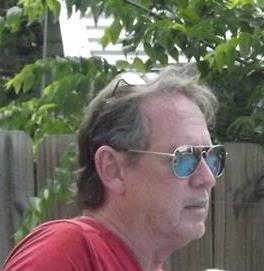“How long has it been?”
They sit on the hot asphalt, their backs against the car, an old army blanket she found in the old Chevy’s trunk folded in half and then half again to prevent the blacktop from burning their bottoms. The fat car offers a fat shadow, the only shade for miles. The Mojave stretches for many miles.
“Maybe two hours, I think. Could be longer,” she answers, her eyes closed, hidden beneath the oversized booney hat the same color as the desert sand. It was his hat, but he is not here.
“It’s been longer than two,” the boy informs her, wiping the sweat from his brow. He looks at his arm, the one used to wipe sweat. It is dirty with Mojave sand. Mojave sand and sweat mat down the fine blond hairs. He wants to write his initials in the sweat and dirt. He doesn’t. It is too hot.
It had been too hot inside the old, fat Chevy, even with the windows and doors open, waiting for a breeze that would never come. The back seat stuck to the back of his sweaty legs. When he moved his scrawny, sweaty legs, they made a noise like breaking wind. He thought it was funny. She told him it was too hot to be funny. She found the blanket in the trunk under the spare tire that was flat. Get out of the car, she told him; it’s too hot.
“I’m bored. Hot and bored,” he told her.
“And you stink. A hot, bored and stinky boy,” she laughs. “Did you bring your book?”
“It is in the car.”
“You should get it.”
“No.”
“Then be bored.”
“And hot.”
“You can’t stop the hot,” she tells him, lifting the booney hat to see his face. “You can stop the boredom.”
He pushes himself up and off the itchy blanket. Not to get the book. To stretch. The boy stretches his arms to the colorless sky. He can smell his pits. He stinks. Across the Mojave, at the end of the endless asphalt, he can see the mountains. Brown and orange monsters. He wishes he were on the mountain.
“Are you getting your book?” she asks.
“No. I finished it,” he lies.
“All of it?”
“The good parts.”
“It is all good,” she tells him.
“Not really.”
“Then we can use it to start a fire tonight, when it gets cold.”
He looks down at the woman in her oversized booney hat and long, tanned legs. “It won’t be cold.”
“It will,” she replies without moving.
“How do you know?”
She doesn’t answer him. He reaches into the fat car, picking up the book from the floorboard.
“He’s not coming back,” he tells her, returning to the hot asphalt and itchy blanket.
“Yes, he his. Read your book.”
“How do you know?”
Opening the glass bottle, she sips the warm water, letting it sit on her parched tongue. She offers the bottle to the boy. He drinks too much.
“He told me he would be back with help.” She places the cap on the almost empty bottle. They will have no more water when it’s gone.
“He was lying.”
“Don’t talk like that about your father,” she scolds.
“He is not my father.”
“He said he would be back. He will be back. Now be quiet and read your book.”
“He lied before.”
She doesn’t answer. She knows the truth.
Standing, he drops the book; it plops on the itchy blanket. “Maybe I will go get help.”
“And leave me here?” she asks.
She waits for his answer. Her eyes are closed. The sun hurts her eyes more than her thirst hurts her throat. More than the sunburn on her long, tanned legs. More than the fat car pushing against her back. More than the hard ground protesting her boney backside. More than the truth.
The boy is quiet.
She opens her eyes. He looks at her, his finger pressed against his dry lips. The snake drifts slowly over the desert floor, moving like an old serpent, turning its diamond tattooed body, sketching S’s across the sand. It’s too hot for the desert serpent. He senses the shade beneath the old, fat Chevy. He moves closer to the boy and his mother.
The boy thinks he will throw the book at the snake. He will have to move to get the book. He doesn’t want to move.
The glass bottle shatters on the hard desert ground, missing the snake. The snake forgets the shade. Crawling away, his belly on the hot asphalt, then on the hot sand, he is gone.
So is the water.
The boy sits, lying his head on her shoulder. He weeps.
“I won’t leave you,” he tells her after the tears dry up.
“I know.”
“Why did we have to leave home?”
“No work. The war has been hard on everyone. He said there is work out west.”
“He had work.”
She says nothing.
He lifts his head. “He lied. He lost the job because he lied.”
“That’s not what happened.”
“Now you will lie too?”
“I’m sorry.”
Looking across the Mojave, he sees water shimmering under the sun’s prickly arms. He knows it is a mirage. He learned of mirages in the book he was reading. His tongue explores the cracks in his too-skinny lips. Skinny lips under a fat nose set between dark green eyes. He looks at the broken glass. It shimmers like the mirage. But no water. The earth drank it all. For a moment he hates her.
“How long has it been?”
“Six hours. Maybe more. He will be back for us.”
“He’s not coming back.”
She stares at the desert with its tanned sand and dying cacti. And cloudless sky. She is listening for the sounds of the Mojave. There are no sounds for her to hear.
“I know,” she answers, closing her eyes.


